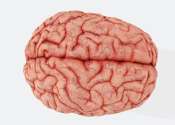Chronic kidney disease (CKD), also known as chronic renal disease, is a progressive loss in renal function over a period of months or years. The symptoms of worsening kidney function are unspecific, and might include feeling generally unwell and experiencing a reduced appetite. Often, chronic kidney disease is diagnosed as a result of screening of people known to be at risk of kidney problems, such as those with high blood pressure or diabetes and those with a blood relative with chronic kidney disease. Chronic kidney disease may also be identified when it leads to one of its recognized complications, such as cardiovascular disease, anemia or pericarditis.
Chronic kidney disease is identified by a blood test for creatinine. Higher levels of creatinine indicate a lower glomerular filtration rate and as a result a decreased capability of the kidneys to excrete waste products. Creatinine levels may be normal in the early stages of CKD, and the condition is discovered if urinalysis (testing of a urine sample) shows that the kidney is allowing the loss of protein or red blood cells into the urine. To fully investigate the underlying cause of kidney damage, various forms of medical imaging, blood tests and often renal biopsy (removing a small sample of kidney tissue) are employed to find out if there is a reversible cause for the kidney malfunction. Recent professional guidelines classify the severity of chronic kidney disease in five stages, with stage 1 being the mildest and usually causing few symptoms and stage 5 being a severe illness with poor life expectancy if untreated. Stage 5 CKD is also called established chronic kidney disease and is synonymous with the now outdated terms end-stage renal disease (ESRD), chronic kidney failure (CKF) or chronic renal failure (CRF).
There is no specific treatment unequivocally shown to slow the worsening of chronic kidney disease. If there is an underlying cause to CKD, such as vasculitis, this may be treated directly with treatments aimed to slow the damage. In more advanced stages, treatments may be required for anemia and bone disease. Severe CKD requires one of the forms of renal replacement therapy; this may be a form of dialysis, but ideally constitutes a kidney transplant.









